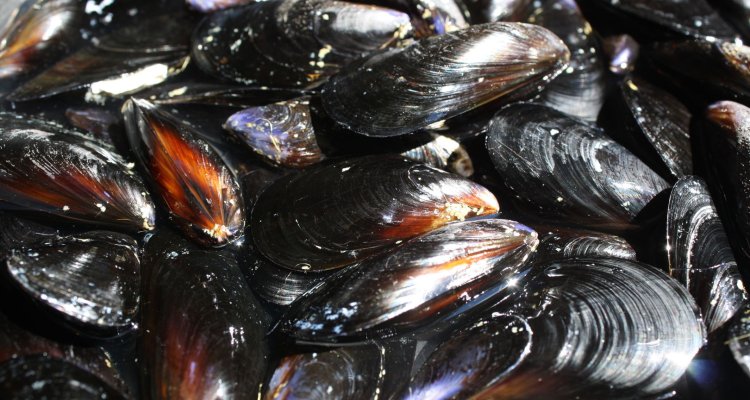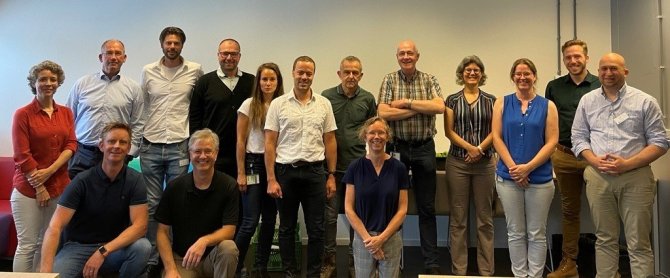
News
Shellfish as a source of protein and health-promoting compounds
An international consortium is joining forces in a public-private partnership (PPP) to develop methods to utilise all components of shellfish, such as mussels while maintaining health-promoting compounds. These components are a source of protein and health-promoting components for foods, supplements and high-quality animal feed within aquaculture.
The four-year project 'Development and implementation of the total use principle of bi-valves' focuses on the development of the total use principle of the common mussel. This means that the mussel is separated into several parts or fractions using a separation process (fractionation). Each fraction has its own application, so all fractions can be used most efficiently. The created fractions are rich in protein and health-promoting compounds (substances that affect health, including vitamins, antioxidants, small proteins and omega-3 fatty acids). These compounds can be used as ingredients for food, food supplements, or compound feeds to replace raw or fresh feeds in aquaculture. In the latter case, consider, for example, the farming of shrimp and certain saltwater fish, where mussels, squid and worms are currently used. The advantage of using compound feeds over fresh or raw feeds is, among other things, that the risk of introducing diseases and the negative effect on water quality is reduced.

The common mussel
The common mussel is used as a model species for this study. The approach has the potential to develop new revenue models with access to novel markets with high economic potential. The potential for human applications is enormous, including preventing anaemia, cardiovascular disease, anti-inflammatory effects, and relieving arthritis. Growing this species does not require fresh water, and mussels need not be fed. They get their own nutrition directly from the water. Further additional advantages may be that mussel cultivation efficiently uses available (and, in the future, limited) nutrients such as phosphate, and water quality is also improved by the fixation of phosphate. In addition, mussel farming promotes biodiversity or the diversity of animal species in the area where the mussel is farmed. By focusing mainly on using broken and oversized mussels and, in the future, other shellfish species, the raw materials are expected to be used more efficiently.
This PPP supports the Dutch Knowledge and Innovation Agenda aimed at developing new revenue models with access to novel markets with high economic added value for the regional blue or common mussel. In addition to Wageningen University & Research, the consortium comprises Lenger Seafoods Group B.V., Emonta B.V., Hendrix Genetics Aquaculture B.V., Metex Noovistago and Nomad Foods Europe Limited.